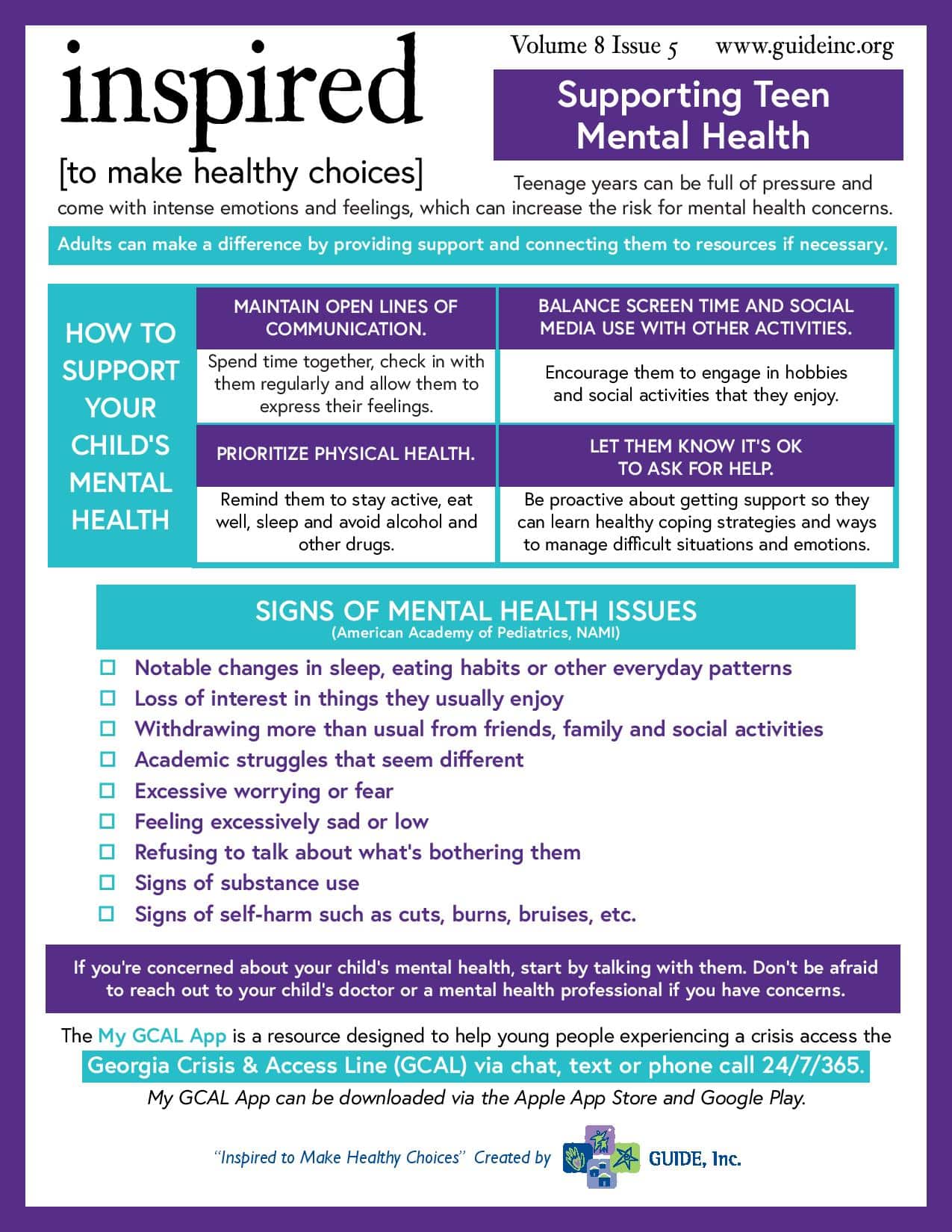
For another convenient way to share this information, check it out in our Inspired to Make Healthy Choices newsletter.
Teenage years can be full of pressure and come with intense emotions and feelings, which can increase the risk for mental health concerns.
Adults can make a difference by providing support and connecting them to resources if necessary.
How to Support Your Child’s Mental Health
- Maintain open lines of communication. Spend time together, check in with them regularly and allow them to express their feelings.
- Balance screen time and social media use with other activities. Encourage them to engage in hobbies and social activities that they enjoy.
- Prioritize physical health. Remind them to stay active, eat well, sleep and avoid alcohol and other drugs.
- Let them know it’s OK to ask for help. Be proactive about getting support so they can learn healthy coping strategies and ways to manage difficult situations and emotions.
Signs of Mental Health Issues (American Academy of Pediatrics, NAMI)
- Notable changes in sleep, eating habits or other everyday patterns
- Loss of interest in things they usually enjoy
- Withdrawing more than usual from friends, family and social activities
- Academic struggles that seem different
- Excessive worrying or fear
- Feeling excessively sad or low
- Refusing to talk about what’s bothering them
- Signs of substance use
- Signs of self-harm such as cuts, burns, bruises, etc.
If you’re concerned about your child’s mental health, start by talking with them. Don’t be afraid to reach out to your child’s doctor or a mental health professional if you have concerns.
The My GCAL App is a resource designed to help young people experiencing a crisis access the Georgia Crisis & Access Line (GCAL) via chat, text or phone call 24/7/365. It can be downloaded via the Apple App Store and Google Play.
